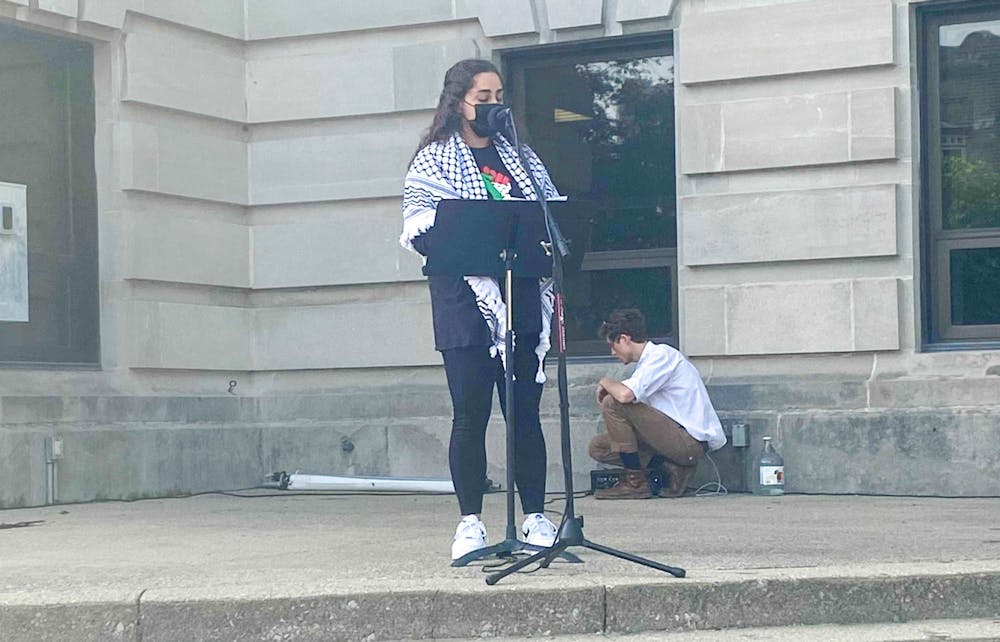More than 200 demonstrators gathered outside the Monroe County courthouse Saturday evening to protest Israel’s recent bombings of Palestinians in Gaza City.
The rally was organized by Aaron Comforty, an IU alumnus, to show support for Palestinians as Israel continues to attack Gaza, according to the Facebook page for the event.
“We demand an end to unconditional military funding. We demand an end to Israeli apartheid,” Comforty wrote. “With anger and love, Jews Against Israeli Apartheid.”
Junior Serena Dajani said she is a Palestinian American who grew up in the United States but knows what it is like to be a child in Palestine.
In Gaza, 248 Palestinians have died 73 of these deaths were of children, according to the Defense for Children International.
“I want you all to take a moment to think about what you have experienced in life, what amazing adventures you have been on. These children will never get that,” Dajani said.
The recent violence began on May 10 when Hamas, the political group that controls the Gaza Strip, launched rockets towards Jerusalem in support of Palestinian demonstrators who were protesting the Israeli policing of the Al-Aqsa mosque in Jerusalem. This prompted an attack from the Israeli military on the area of Gaza, according to the New York Times. A ceasefire went into effect at 2 a.m. on May 21.
"I believe the Palestinians and Israelis equally deserve to live safely and securely, and enjoy equal measures of freedom, prosperity and democracy," President Joe Biden said in a press conference May 20.
According to the Congressional Research Service, the US has pledged 38 billion dollars in military aid to Israel from 2019 to 2028.
The recent attacks are the most violent the region has seen since 2014, when over 2100 Palestinians were killed according to the United Nations.
Comforty stressed the importance of referring to the current conflict between Israel and Palestine as apartheid.
“That’s the word we need to use,” Comforty said. “The more we say Israeli apartheid the more it becomes normal to say the truth.”
CORRECTION: A previous version of this article misstated Aaron Comforty's academic status.




